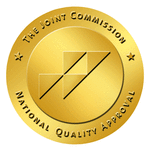An Addict Makes Her Own Choices
Many times, when we have a loved one who is addicted, the best thing we can do is stand back and let them make their own choices. It can be upsetting to watch them make unhealthy and self-harming decisions, but that doesn’t mean that we are completely helpless when it comes to recovery.
Q: What can you do about it?
A: Pray
“Son, my father told me recently, the only true weapon that had any effect on me…was to pray. There were even times I could feel the prayers and many days they gave me a new courage to take a step.”
My father struggled with alcoholism for many years, and until he was ready to make the change, we were unable to save him from his choices. However, what we could do was pray.
6 Things To Pray For
Here are six things you can pray for regarding an addict:
1. Pray for acknowledgement.
Pray that your loved one will realize they have an addiction and that they are hurting themselves and others around them.
2. Pray that they move past self-pity and loathing.
After my father had gained awareness about his disease, he had to move past the hate, shame and guilt he put on himself after years of addiction. Pray that they will understand how valuable their lives are that that their experiences could one day be used to help heal others.
3. Pray for desire to heal.
After my father moved from self-loathing and pity, he was finally ready to seek healing. However, he had to find a reason to heal that was stronger than his desire to drink. Pray that the addict in your life finds the reason they want to quit, and it will help them move past their substance abuse.
4. Pray for properly trained support.
Addicts needs support that is not only physical but spiritual. They need help figuring out their triggers, turning points, and what gives them the courage to get through the day. Pray that the addict in your life not only finds support from family and friends, but also finds strong accountability.
5. Pray that God gives them the strength.
Addicts have to make the choice NOT TO USE DRUGS OR ALCOHOL each and every day. They have to choose to go against their desire and choose the healthiest path. Pray that God helps your loved one to choose the path and keeps them whole.
6. Pray for forgiveness.
Breaking the cycle of addiction is not easy. The addict in your life may take a couple steps forward, and a couple steps back. Pray that you can offer the forgiveness they need when they make mistakes. Moreover, be willing to forgive many times as they walk this difficult path toward recovery.
Our Prayers Have Value
My father has worked incredibly hard to work past his addiction to become a healthy person. I am so proud of him and the work he did to become the wonderful man he is today. It was only through applying God’s principles to his personal journey that he was able to overcome obstacles and create a life of peace.
No matter what, our prayers have value, and they can help those who are struggling with addiction to move forward toward healing and rehabilitation.
In your Service,
Stephen Scoggins
Photo credit: Wiki Media Commons




 RSS Feed
RSS Feed
